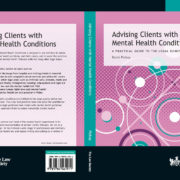Mental Health Law 2025 – Virtual Conference
29 September, 2025, 10am to 4:15pm
Introduction
Chaired by Sian Davies, this online conference with a panel of leading experts offers a comprehensive update as to the current hot topics in this fast-moving area. Each session will provide a full opportunity for questions and answers.
Conference Agenda
This live and interactive 5 hour conference will cover the following:
10am – 11am: Interface between MHA 1983 and Deprivation of Liberty Safeguards (‘DOLS’) under the Mental Capacity Act 2005,
Sian Davies, 39 Essex Chambers
This session will explore the relationship between the Mental Health Act 1983 and Deprivation of Liberty Safeguards (DOLS) under the Mental Capacity Act 2005. It will cover which statutory framework applies in different circumstances, which takes priority, and the application of DOLS in cases of guardianship or Community Treatment Orders (CTOs). The session will also examine the impact of Manchester University Hospital NHS Foundation Trust v JS & Others under MCA 2005, Schedule 1A.
- Which statutory scheme applies in what circumstances?
- Which takes priority?
- Can DOLS apply in cases of guardianship? CTO?
- MCA 2005 Schedule 1A: decision in Manchester University Hospital NHS Foundation Trust v JS & Others
11:10am – 12:10pm: Section 117 MHA 1983: After-Care
Sian Davies, 39 Essex Chambers
This session will focus on Section 117 of the Mental Health Act 1983 and the after-care provisions it outlines. It will cover the definition of after-care, including what services are provided and which are excluded. The session will also explore exclusions for individuals from abroad, clarify who holds responsibility for after-care needs post-Worcestershire, and discuss when and how the after-care duty concludes. This session is essential for understanding the scope and responsibilities related to after-care under the MHA.
- What is after-care? What services are included and excluded?
- After-care for persons from abroad: exclusions?
- Who is responsible for meeting after care needs post-Worcestershire?
- How does the after-care duty end?
12:10pm – 1:10pm: How to be a Good Mental Health Lawyer (and keep up to date with law reform)
David Pickup, Pickup & Scott Solicitors
This session will focus on the key qualities and practices that make a good mental health lawyer. We will discuss how to effectively represent clients by being well-prepared and knowledgeable, while also maintaining a professional and comfortable relationship with the tribunal and the client. Additionally, we’ll explore the importance of professionalism, being helpful, and ensuring safety in practice. We’ll also cover effective questioning techniques, fostering strong professional relationships, and how to anticipate and navigate future developments in mental health law cases.
- Effective preparation and knowledge for client representation and tribunal hearing
- Building a professional and comfortable relationship with clients
- Techniques for asking questions effectively in hearings
- Strategies for maintaining professionalism and anticipating future developments in cases
2:00 – 3:00pm: Decisions, Decisions, Decisions – When to Challenge
David Pickup, Pickup & Scott Solicitors
This presentation will focus on when legal professionals should consider challenging key decisions within mental health proceedings. We’ll explore critical decisions such as when to adjourn hearings, whether to discharge an individual from care, and the timing of making recommendations. Understanding when and how to challenge these decisions is essential for safeguarding the rights of individuals, ensuring fair legal processes, and promoting outcomes that are legally sound and in the best interest of those involved.
- Identifying key decisions in mental health proceedings that may warrant challenge
- Understanding the legal grounds for challenging adjournments, discharges, and recommendations
- Exploring the impact of challenging decisions on the rights of individuals in care
- Ensuring fairness and legal soundness in decision-making processes
- Promoting outcomes that align with the best interests of individuals involved in mental health proceedings
3:15 – 4:15pm: Consent to Treatment- Fluctuating Capacity and Latest Update
Elizabeth Cleaver, Barrister, Doughty Street Chambers
This session will explore consent to medical treatment for patients detained under the MHA, focusing on fluctuating capacity. The session will cover the statutory framework, CQC guidance, and recent Court of Protection case law, including Leicestershire County Council v P & another [2024], the first case addressing fluctuating capacity in individuals with dissociative identity disorder and complex PTSD. The session will also examine legal frameworks for authorising treatment in patients with mental disorder or impaired capacity, making it a vital session for legal professionals and clinicians involved with MHA patients.








